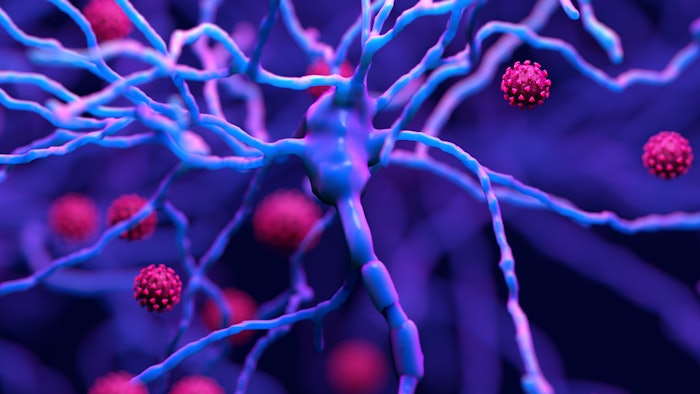Session highlights uncertainties in preventing stroke in COVID-19 patients

Brett L. Cucchiara, MD, moderator of Friday's session “Prevention of Stroke in COVID-19 Patients,” summarized features of patients having COVID-19 who experience stroke to include: the majority of patients are older with vascular risk factors having traditional stroke mechanisms as well as half of the incidence of stroke occurring in critically ill patients. He also noted these characteristics are often seen in non-COVID-19 patients.
“It still remains uncertain whether there are unusual features specific to COVID in some patients?” said Cucchiara, professor of neurology at the University of Pennsylvania Medical Center in Philadelphia. He said previous reports and anecdotal data have created uncertainties regarding the extent to which large vessel occlusion occurs, clot resistance to thrombectomy or early rethrombosis after recanalization is detected, and the ongoing potential for increased risk of stroke in younger people.
Despite a general concern early in the pandemic that COVID-19 would cause a stroke epidemic, stroke has remained a relatively infrequent complication of COVID-19, potentially disabling observational data from a U.K. multicenter study suggesting during the first wave of the pandemic that COVID-19 was associated with more severe stroke at admission and worse outcomes at discharge.
“COVID-19 is associated with a hypercoagulable and inflammatory state with a high risk of thrombosis and a lower risk of ischemic stroke,” said David Werring, PhD, professor of clinical neurology with the Stroke Research Center at UCL Queen Square Institute of Neurology in London, in his discussion on the antithrombotic treatment for stroke prevention in COVID-19. Werring presented a treatment algorithm for COVID-19 patients without ischemic stroke, with ischemic stroke without venous thromboembolism (VTE) and in patients with ischemic stroke and VTE.
“These are complicated treatment decisions that need to be made on a case-by-case basis by a multidisciplinary team,” he said. The optimal dose of anticoagulation for primary and secondary stroke prevention in COVID-19 is not known. More data is needed.
Discussing the potential long-term consequences of COVID-19 and stroke, Marion Buckwalter, MD, PhD, professor of neurology and neurological sciences at the Stanford University Medical Center in California, outlined the association between severe sepsis and COVID-19, and the amplification of immune responses that may increase the risk of dementia and other mechanisms that might permanently impair neurological functions.
“Both hospitalization and encephalopathy increase the risk of post-COVID dementia or mood disorder,” Buckwalter said. Long-term cognitive outcome studies on cognitive trajectory of COVID-19 are needed to determine if there is an additional late increased risk of cognitive impairment.
The highlight of the session was a debate on whether COVID-19 leads to increased large vessel occlusion in the young. Hooman Kamel, MD, MS, chief of neurocritical care at Weill Cornell Medical Center in New York, discussed the pathophysiology of COVID-19 and the mechanisms for large vessel occlusion.
“Compared to critically ill patients who didn’t have COVID, critically ill patients had higher levels of disrupted coagulating that could lead to thrombotic events,” Kamel said. “There’s a robust formation of thrombotic disease in patients with COVID-19 that matches my clinical experience.” COVID-related stroke tends to be more severe and occur late in hospitalization.
“Anticoagulation helps prevent critical illness in COVID,” Kamel said.
Kori Zachrison, MD, MSc, associate professor of emergency medicine at Massachusetts General Hospital and Harvard Medical School in Boston, presented a compelling argument for how COVID-19 may not be associated with large vessel occlusion in the young, defined as patients less than 50 to 60 years of age, using Hill’s Criteria for Causation. Zachrison noted that a substantial proportion of patients hospitalized with COVID-19 and stroke have many vascular risk factors.
Could the association between COVID-19 and large vessel occlusion be incidental due to widespread COVID-19 infection in the community? Do we have a residual confounding problem?
“We are fixing the plane as we’re flying it, as we’re trying to take the very best care of our patients. Let’s take a moment of caution before we’re too eager to accredit causality,” Zachrison said.








